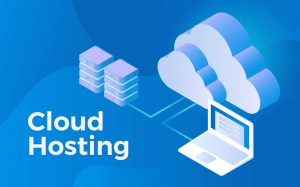Mindfulness in the Workplace: 15 Ideas for Practicing Mindfulness on the Clock

Every work environment can be hectic, increasing stress levels for all employees involved. From staying on track with workplace communication to scheduling various meetings and fighting approaching deadlines, creating a work environment that incorporates mindfulness exercises into daily tasks is crucial for increasing productivity. Here are some of the most common mindfulness exercises that help improve the morale and work output of the workplace:
Start Each Day with a Decisive Action:
Setting the tone for a long day at work is a perfect way to practice mindfulness. By making a strong decision, the brain harnesses this energy for any more subsequent determinations, which can help dissuade or more effectively combat indecisiveness for the rest of the day.
Be Conscious of Work Decisions:
Similar to decisiveness, being fully present and alert when making work-related decisions is the epitome of mindfulness. Refocusing and re-centering any straying thoughts can help increase productivity by promoting task completion and instilling a sense of determination to complete these tasks.
Incorporate Mindfulness into Routines:
Traditional mindfulness activities usually consist of uninterrupted quiet for an extended period; however, this is not feasible for a busy work day. Smaller bursts of mindfulness-centered exercises throughout the day help incorporate the pauses needed to strengthen work output. Plus, in times of heightened stress, these breaks provide clarity and necessary tension release to re-center on productivity.
Tackle Tasks One at a Time:
Multitasking may seem like a favorable option for promoting productivity, but switching back and forth between ideas and tasks can be frustrating and confusing. Taking on one task at a time, seeing it to its completion, and then moving on to the next assignment will help you get jobs done faster while adding the feeling of being more productive once a task has been completed.
Track Time Management:
When performing multiple tasks, keeping a time log of how long it takes to complete each task and noting whether these tasks were done individually, to completion, or by multitasking can help put the power of mindful task management into perspective. Typically, multitasking causes one to complete tasks slower than when done individually.
Make Reminders Mindfully:
Sometimes, a stressful workday can cause workers to disengage while performing tasks. Using a reminder system, especially something visual like colored sticky notes, can help bring down someone lost in thought and re-center them on their work.
Set Alarms for Important Tasks:
Just as written reminders can provide a visual aid for staying on task, auditory reminders and alarm tones can aid in the same grounding process. Hearing a text tone, alarm sound, or ringtone can be the mental break needed to reorient someone drifting from their task.
Take Necessary Momentum Breaks:
Trying to speed through work, regardless of complexity, can lead to mistakes and burnout. Taking necessary breaks, either for mindfulness activities or just to step back from work, can help prevent bigger issues or problems caused by rushing through projects.
Positively Harness Stress:
Stress may have a negative connotation, but learning how to harness this energy and turn it into a positive force for creation can be amazing for productivity. Mindfully responding to stress, instead of jumping immediately to negative conclusions, can change the bodily functions responsible for responding to stress reactions, producing positive reactions rather than negative ones.
Practice Gratitude:
Finding things to be grateful for in everyday tasks can drastically improve the feelings associated with handling those tasks. Instead of focusing on negativity or the burden of having work to do, being grateful for the positives of a position can improve any feelings associated with completing its role.
Stifle Unwanted Negativity:
Negative thoughts are bound to manifest, especially when completing unwanted or unsavory tasks at work. Mindfully responding to these thoughts, both by recognizing the place they are coming from and by finding a positive spin on them, can motivate productivity.
Find a Sense of Grounding:
Humility is an extremely important virtue for everyday life, but harnessing these values in the workplace can help create a welcoming culture of celebrating achievement for productivity. Instead of bragging about finishing a project with high praise, accept the compliment and use it as personal motivation.
Engage in Self-Decentering:
Similar to welcoming humility, uplifting team members for shared accomplishments is just as useful as avoiding over-inflations of self-achievements. If team members go above and beyond in their work, ensuring they are celebrated for their actions can be extremely rewarding, giving them positive accolades to remember during their mindfulness work.
Accept Unchangeable Factors:
Mindfulness is coupled with presence in daily life, and sometimes, the factors of life are unchangeable. Accepting this fact is crucial for dealing with problems in the workplace. For example, if a crucial deadline is missed or a spending cap is breached before the completion of the project, these should be viewed as learning experiences and not causes for criticism.
Encourage Growth and Functionality:
In any field, there is always room for growth. Encouraging the cultivation of a growth-based mindset can help fuel better performance, as effort and hard work will be rewarded with increased talent. HThismindset helps when facing issues at work, whether personally between coworkers, professionally based on performance, or overall negative feelings associated with the tasks at hand.
The functionality of the workplace goes beyond day-to-day interactions, including critical features like web design, digital communication systems, and digital marketing. Optimizing these services can help create a more straightforward platform for communication between staff and possible clients, reducing overall workplace stress. Harnessing these mindfulness behaviors and check-ins is essential for increasing your workplace’s productivity.






